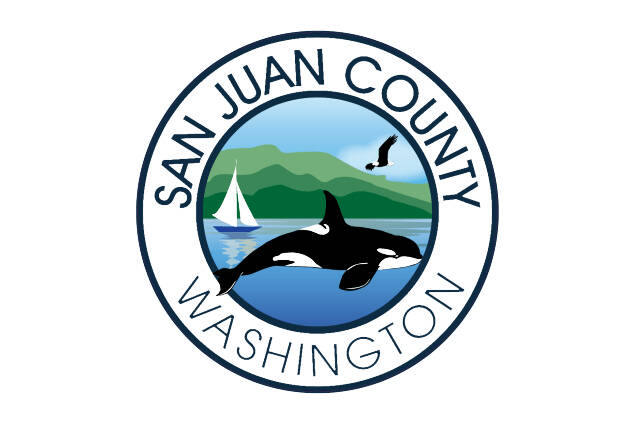Submitted by San Juan County.
You’ve always been asked to stay home when you’re sick, but it’s not always that simple. This year, more than ever, it’s important to stay home when you have cold or flu symptoms, practice good hand hygiene, and get your COVID-19 booster and flu shot.
Is it COVID, flu, a cold, RSV, or seasonal allergies?
COVID-19 symptoms can be easily confused with the flu (influenza), the common cold, RSV (respiratory syncytial virus), or even seasonal allergies. But COVID-19, flu, and RSV can be serious and may lead to hospitalization, severe illness, and even death. COVID-19 and flu are preventable through vaccination. You can use our handy chart on the Health & Community Services website here to help identify common symptoms. As always, for medical emergencies (such as difficulty breathing) call 911.
Stay home when you’re sick. Seriously.
It is very simple: Stay home when you’re sick. Don’t travel, don’t go to work or school, and don’t have people over to your house when you are experiencing COVID, flu, cold, or RSV symptoms. You can still get free COVID-19 test kits through the SAY YES! COVID TEST site. Many pharmacies also sell tests, and most insurance companies will cover the cost. If you have symptoms, test and stay home!
Regardless of your vaccination status, if you have tested positive for COVID you should stay home for at least 5 days and isolate from others in your home. You should also isolate if you are sick and suspect that you have COVID but do not yet have test results. Please observe the following guidelines to help determine the length of time you need to isolate when sick:
If you had no symptoms, you may end isolation after day five.
If you had symptoms and your symptoms are improving, you may end isolation after day 5 if you are fever-free for 24 hours (without the use of fever-reducing medication, like Tylenol).
If your symptoms are not improving, you should continue to isolate until you are fever-free for 24 hours (without the use of fever-reducing medication) and your symptoms improve.
If you had symptoms and had moderate illness (i.e., you experienced shortness of breath or had difficulty breathing), you need to isolate through day 10.
If you had symptoms and had severe illness (i.e., you were hospitalized) or have a weakened immune system, you need to isolate through day 10 and consult with your doctor before ending isolation (ending isolation without a viral test may not be an option for you).
Regardless of when you end your isolation period and until at least day 11, you should avoid being around people who are more likely to get very sick from COVID. You also need to remember to wear a high-quality mask when indoors around others at home and in public and avoid places where you are unable to wear a mask until you are fully out of isolation (e.g., eating indoors at a restaurant).
Remember to practice good hand hygiene.
Regular handwashing is one of the best ways to remove germs, avoid getting sick, and prevent the spread of germs to others. Whether you are at home, at work, traveling, or out in the community, handwashing with soap and water (or with an alcohol-based hand sanitizer) can protect you and your family. Germs can spread from person to person or from surfaces to people when you touch your eyes, nose, and mouth with unwashed hands; prepare or eat food and drinks with unwashed hands; touch surfaces or objects that have germs on them; and/or blow your nose, cough, or sneeze into hands and then touch other people’s hands or common objects. Wash your hands often with soap and water for at least 20 seconds. Wash before touching your eyes, nose, or mouth; after touching your mask; after leaving a public space; after touching objects or surfaces that may be frequently touched by other people; before and after preparing and eating food; and after using the restroom. If soap and water are not readily available, use a hand sanitizer with at least 60% alcohol to clean your hands.
Get a flu shot and a COVID booster.
The best way to reduce your risk from seasonal flu and its potentially serious complications is to get a flu shot every year. Everyone 6 months and older should get a flu vaccine, especially people who are at higher risk. Flu vaccination can reduce the risk of flu-associated hospitalization, can be life-saving in children, and may also protect those people around you (including those who are more vulnerable to serious flu illness). You can use the vaccines.gov website to search for locations where flu vaccines are available.
COVID-19 remains the third leading cause of death in the US, and people who are vaccinated are significantly less likely to get seriously ill and die from COVID-19, compared to those who are unvaccinated. Vaccinations can also help prevent individuals from developing the long-COVID symptoms reported by up to 50% of those who become ill from COVID-19. While our mass vaccination clinics are wrapped up for now, Health & Community Services continues to provide COVID-19 vaccines (primary series and booster doses). You can search and register for clinics on our website here. Many of our local pharmacies and medical providers are also providing COVID-19 and flu vaccines—just call ahead or check websites to see what’s currently available.
Bottom line? Stay home when you’re sick. Wash your hands regularly. Get your vaccines.




